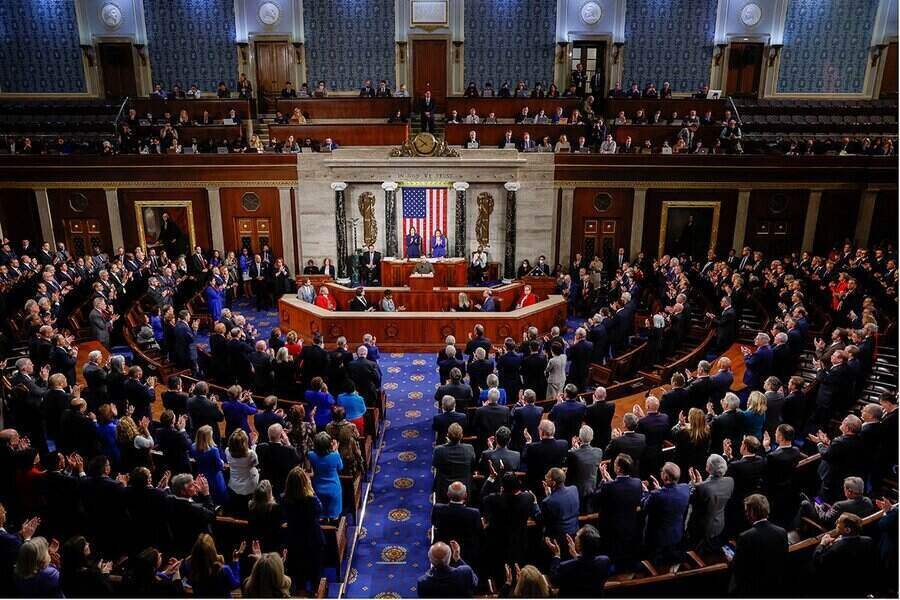Senator JD Vance (R-Ohio) and several other Republican lawmakers in Washington, D.C., are introducing a bill to eliminate Diversity, Equity, and Inclusion (DEI) programs in federal government agencies.
On Wednesday, Vance introduced the Dismantle DEI Act, aimed at eliminating all federal DEI programs and cutting funding for federal agencies, contractors, organizations, and educational accreditation agencies.
Vance introduced the bill to the Senate, while Rep. Michael Cloud, R-Texas, introduced it to the House.
Joining as cosponsors are Senators Marsha Blackburn (R-Tenn.), Bill Cassidy (R-La.), Kevin Cramer (R-N.D.), Eric Schmitt (R-Mo.), and Rick Scott (R-Fla.), along with 15 members of the House of Representatives.
“The DEI agenda is a destructive ideology that breeds hatred and racial division. It has no place in our federal government or anywhere else in our society,” Vance said.
“I’m proud to introduce this legislation, which would root out DEI from our federal bureaucracy by eliminating such programs and stripping funding for DEI policies anywhere it exists. Americans’ tax dollars should not be co-opted to spread this radical and divisive ideology — this bill would ensure they are not,” he added.
According to Vance, the proposed legislation would unwind DEI policies implemented by President Biden and his administration across every agency of the federal government.
The proposal also includes repealing applicable executive orders, removing chief diversity officers, shuttering DEI offices, halting DEI and critical race theory trainings, banning mandatory employee DEI pledges, and withdrawing all DEI funding from the Department of Defense, Department of Homeland Security, Department of Health and Human Services, and other agencies.
“DEI practices have zero place in our federal government,” Cloud said.
“These initiatives, presented as promoting fairness, have instead fostered division and racial bias within our institutions and culture — which is not conducive to serving taxpayers well,” he continued.
“This bill is a necessary step to restore merit and equality, not equity, in America’s government institutions, and eliminate the DEI bureaucracy that sows division and wastes taxpayer money,” he added.
Along with unwinding policies implemented by the Biden administration, the legislation would also prevent entities that employ prohibited DEI practices from being awarded federal contracts.
Vance said nearly $1 trillion worth of federal contracts were awarded last year to companies specializing in defense, construction, aerospace and other industries.
The proposed legislation, if passed, could also prevent federal grant recipients from employing DEI practices, as well as prevent educational accreditation agencies from leveraging their powers to advance and implement DEI policies at education institutions.
House Republicans are targeting this year’s essential defense policy bill as a platform to oppose left-leaning Biden administration policies concerning diversity, LGBTQ representation, and gender ideology.
Over 1,300 amendments have been offered to the National Defense Authorization Act (NDAA) of fiscal year 2025, annual legislation mapping out the Pentagon’s priorities as well as national security-related measures in the Department of Energy.
Among those amendments are at least 10 proposed amendments to DEI initiatives within the Pentagon.
Several of them are aimed at eliminating the department’s two principal diversity offices; the Office for Diversity, Equity and Inclusion and the Defense Advisory Committee on Diversity and Inclusion, as well as their staff.
A measure proposed by Reps. Glenn Grothman, R-Wis., and Jim Banks, R-Ind., would ban U.S. service academies from using federal funds to create any DEI offices. Rep. Marjorie Taylor Greene, R-Ga., submitted a broad initiative blocking any funding allocated by the NDAA to go toward DEI programs, offices or personnel.
The House’s current NDAA text includes a provision to block Defense Secretary Lloyd Austin from establishing a DEI-related committee or group for Pentagon-funded schools.
Notably, a Democrat-led amendment by Rep. Shontel Brown, D-Ohio, was introduced to block that policy.
Share your thoughts by scrolling down to leave a comment.













